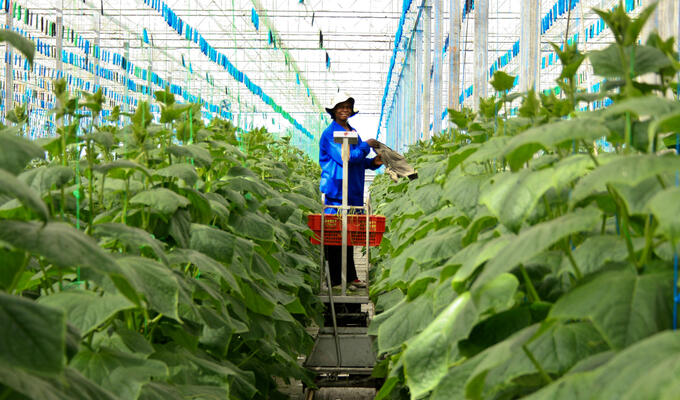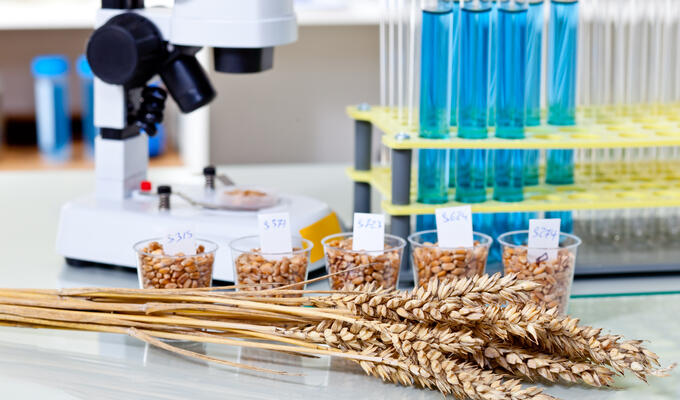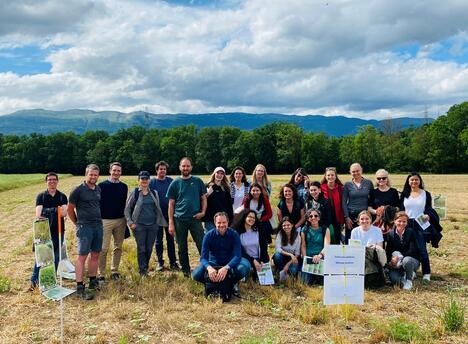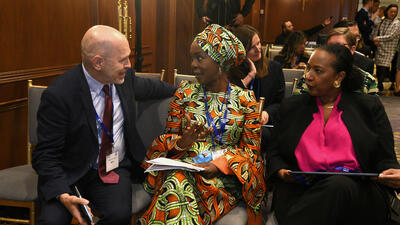

Sustainable sourcing and trade: Learning from the best
ITC partners with the Cambridge Institute for Sustainability Leadership and the Sustainable Agriculture Initiative Platform to empower global decision making in sustainable sourcing and trade.
The International Trade Centre (ITC) recognizes that ‘Partnerships4Purpose’ can contribute to impactful projects and sustainable outcomes. To celebrate the teamwork behind these efforts, ITC is proud to highlight game-changing initiatives that are made possible through strong and meaningful collaboration.
Consumers all around the world are increasingly demanding that products are sourced sustainably. This demand has placed pressure on businesses and executives to adapt their business model and better consider sustainable practices throughout their products’ life cycle: from sourcing to trading to disposal.
The unique approach: Bridging the gap between research, practice, the global and the local
To support businesses worldwide in addressing these concerns, ITC together with the Cambridge Institute for Sustainability Leadership and the Sustainable Agriculture Initiative (SAI) Platform established the International Executive Programme on Sustainable Sourcing and Trade for sustainability experts.
Through this annual, online Executive Programme, ITC connects sustainability practitioners with experts from non-governmental organizations and academia to multiply the efforts towards achieving sustainable value chains and contributing to the UN Sustainable Development Goals.
The impact: Sharing good practices and boosting collaboration
The hybrid training, consisting of online modules on megatrends, nature-positive economy, tools, and sustainability leadership, is complemented by peer-learning groups in which participants work on individual assignments. They address these real-life challenges with the help of peers and coaches. To date, more than 150 executives have been trained through the IEP.
Feedback from executives confirms the impact this training has had on exchange of good practice, developing opportunities for collaboration across businesses and a greater understanding of how to integrate consumer expectations into the project life cycle.
Tools play a crucial role in assisting the companies with their sustainability drive. For instance, the ITC Standards Map developed in-house by the ITC Trade for Sustainable Development Team, and the Farm Sustainability Assessment tool by the SAI Platform provided crucial insights for the participants’ individual projects.
This year’s third edition of the Executive Programme included a field trip to explore regenerative agriculture practices in and around Geneva. About 25 practitioners discovered and discussed new tools, practices, and challenges with experts from Geneva’s Agriculture Office and the local school of landscape, engineering, and architecture of Geneva (HEPIA). Adding this in-person component to the otherwise virtual meetings was a welcome way to connect the global with the local.
Moving forward: Progressive content and scholarships
Long-term partnerships, such as this one, support ITC in refining the Executive Programme and continuously reaching more practitioners globally to ensure sustainable supply chains. Developing trilateral partnerships such as this one, that incorporates academia, policy actors and technical experts can bring a unique perspective on critical issues such as sustainability.
The 2023 edition will feature new and progressive course content. In addition, selected micro and small business partners will have the opportunity to participate in the programme free of charge. Beyond connecting the global with the local, ITC hopes to build bridges and understanding between different scale actors of the supply chain.
The annual Executive Programme is open to practitioners in the field of sustainable trading and sourcing. The next edition will run in spring 2023: https://saiplatform.org/event/international-executive-programme-on-sustainable-sourcing-trade-3/





